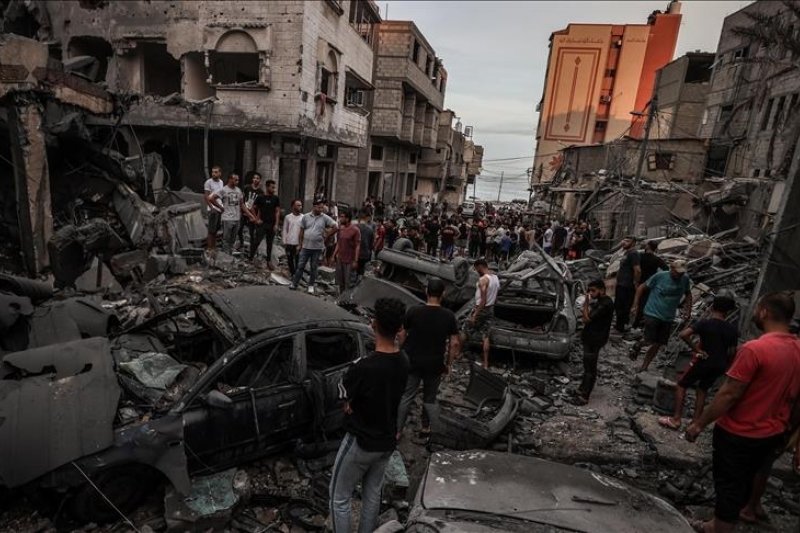The Israel-Gaza War is not stopping anytime soon, Israeli defense officials and former senior intelligence officers have said, raising the prospect of thousands more civilian casualties, a deepening humanitarian crisis and a continuing grave threat to regional stability.
The officials said the war could last over a year.
In a briefing, Rear Adm Daniel Hagari, a spokesman for the Israel Defense Forces (IDF), said the centre and south of Gaza, where military efforts are now focused, was “dense and saturated with terrorists” with “an underground city of branching tunnels”.
Three months would be needed to clear the area and fighting would “continue during the year 2024,” Hagari said.
He said scattered fighting was to be expected in northern Gaza , along with rockets sporadically being launched from there toward Israel, but that Hamas militants were “without a framework and without commanders”.
Maj Gen Amos Yadlin, a former head of military intelligence who is close to senior serving officers, compared the campaign to that led by a multinational coalition against Islamic State in 2017 which took nine months. But in Gaza the situation was much more challenging, he said
“It will take a year to dismantle Hamas,” he said. “It is not the six day war [of 1967]. The timeline is long … [IS strongholds] Mosul and Raqqa were not fortified underground … and the coalition was 85 countries.”
Yadlin also compared the current Israeli offensive to that launched by the IDF into the West Bank in 2002 after a wave of suicide bombings by Palestinian militant groups.
“In 2002 it took two months to get into Palestinian cities and two years to make the terror stop. So Israel is looking at nine months to a year [in Gaza]. It depends on how long Hamas will hold [on],” he said.
The new timeline will concern international observers worried about regional instability and aid agencies who have described a humanitarian catastrophe in Gaza.
There are widespread fears that clashes along Israel’s northern border between its military and Hezbollah could escalate into all-out war, possibly plunging the region into a wider conflict.
Benjamin Netanyahu has insisted the war will not end until the aims of “crushing” Hamas, freeing Israeli hostages and ensuring that Gaza poses no further security threat to Israel are met.
“I say this to both our enemies and our friends. This is our responsibility and this is our commitment,” Israel’s prime minister told his cabinet on Sunday.
Netanyahu faces a difficult meeting this week with the US secretary of state, Antony Blinken, who is on a week-long Middle East tour. Washington’s top diplomat is expected to demand Israel does more to protect civilians in Gaza, allows more aid to reach the territory and offers more detailed proposals for the governance of the territory when Israel’s military offensive ends.
Israel’s defence minister, Yoav Gallant, suggested last week that unspecified Palestinian bodies – apparently local civil servants or community leaders – would take over the territory’s governance.
Gallant also indicated a more precise approach to targeting Hamas fighters and their leaders to reduce civilian casualties.
Yadlin, however, said the IDF’s southern command, which has responsibility for Gaza, had started planning buffer zones within the territory that would be heavily mined to prevent any repeat of the 7 October attack. Such a move would be controversial.
Israel’s campaign in Gaza has killed more than 22,400 people, more than two-thirds of them women and children, according to the Hamas-run health ministry in the territory. Thousands more thought to be buried under rubble and tens of thousands wounded.
By Desmond Nleya, Dialy News


